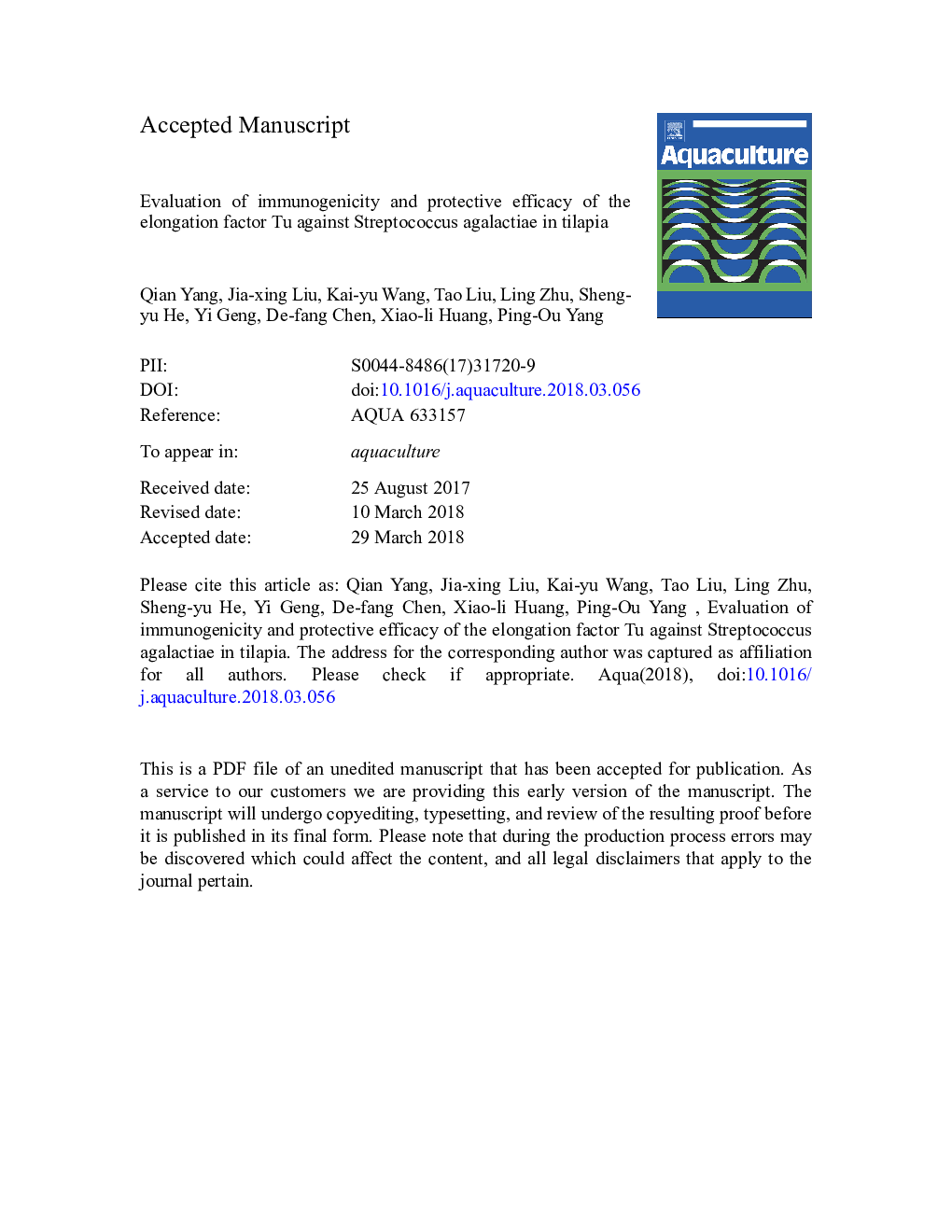| Article ID | Journal | Published Year | Pages | File Type |
|---|---|---|---|---|
| 8493178 | Aquaculture | 2018 | 16 Pages |
Abstract
Streptococcus agalactiae (group B streptococcus GBS) is a Gram-positive pathogen capable of infecting a variety of fish, including tilapia, which results in huge economic losses for aquaculture. Elongation Factor Tu (EF-Tu) is a highly conserved moonlighting protein in GBS. Recent studies have implicated EF-Tu as one of the most important virulence factors of microbial pathogens with high immunoreactivity, which makes it a target for vaccine development. In the present study, the EF-Tu-encoding gene of GBS, HN0303, isolated from tilapia, was cloned and expressed in Escherichia coli. Surface specific stain showed that GBS can be recognized by rabbit anti-recombinant EF-Tu (rEF-Tu) antibodies. Rabbit anti-rEF-Tu serum blocking assays showed that EF-Tu participated in GBS adhesion to Epithelioma popuasum cuprini cells. Active immunization with Freund's incomplete adjuvant plus recombinant EF-Tu induced antigen-specific antibodies in tilapia, and generated moderate immune protection (relative percentage of survival was 70%). In an enzyme linked immunosorbent assay, tilapia antisera showed an antibody titer of 1:500. These observations suggested that GBS EF-Tu was present on the membrane, and that was capable of inducing immunity and protecting tilapia against infection. EF-Tu thus constitutes a candidate molecule for vaccines against GBS.
Related Topics
Life Sciences
Agricultural and Biological Sciences
Aquatic Science
Authors
Qian Yang, Jia-xing Liu, Kai-yu Wang, Tao Liu, Ling Zhu, Sheng-yu He, Yi Geng, De-fang Chen, Xiao-li Huang, Ping Ou-yang,
